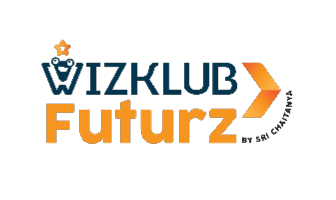In our rapidly evolving digital world, one skill has gained particular importance – coding. It’s no longer limited to the realm of computer scientists and software engineers; coding has become a vital component of literacy in today’s tech-driven society. But how does learning to code prepare your child for the future? Let’s explore this intriguing journey together.
How Coding Prepares Your Child for the Future?
1. Decoding the Language of the Future:
Coding is often dubbed as the “language of the future”. As we increasingly interact with digital devices, understanding this language equips children to be creators in the digital realm rather than just consumers. Whether it’s creating a website, developing an app, or programming a robot, coding skills enable children to shape the digital world.
2. Cultivating Computational Thinking:
At its core, coding develops computational thinking – a critical problem-solving skill. Computational thinking involves breaking down complex problems into smaller, manageable parts, finding patterns, abstracting information, and creating step-by-step solutions. This way of thinking is not just applicable to coding but also to a variety of real-life situations, making it a valuable skill for future problem solvers and innovators.
3. Promoting Creativity and Innovation:
Coding is an incredible platform for creativity and innovation. With coding, children can transform their imaginative ideas into reality. They can build interactive stories, design animated games, or program a robot to do a dance. This creative exploration not only makes coding engaging but also empowers children to think innovatively – a key attribute for future success.
4. Enhancing Logical Thinking and Resilience:
Learning to code involves lots of logical thinking and debugging. Children learn to organize their thoughts logically, predict outcomes, and solve problems systematically. They also learn that making mistakes and facing challenges is a part of the process, teaching them resilience and perseverance, traits that are vital for success in any future endeavor.
5. Preparing for Future Jobs:
As technology continues to permeate every aspect of our lives, the demand for coding skills is soaring in the job market. Many of the jobs of the future will require a basic understanding of coding and computational thinking. By learning to code, children are not only acquiring a valuable skill but also securing a competitive edge in the future job market.
6. Building Confidence and Independence:
Finally, coding builds confidence and independence. When children create a project from scratch or solve a tricky bug, they experience a sense of achievement, boosting their confidence. They also learn to rely on their skills to explore, experiment, and learn, fostering a sense of independence and a love for learning.
How Wizklub helps in preparing your child for the future?
WizKlub is a renowned platform that focuses on cognitive development in children. Its offerings include the Coding and Robotics program, where kids can gain a robust understanding of coding concepts and their applications. The program provides an interactive, self-paced learning experience, designed to foster critical thinking, problem-solving skills, and creativity in children. The students can learn various programming languages, game development, app building, and get introduced to robotics.
The curriculum is age-appropriate and designed in a way that makes coding fun and accessible for children. Through live, personalized sessions with expert instructors and real-time feedback, children can navigate their learning journey effectively.
At Wizklub, the coding courses encourage students to create their own projects, thereby enabling them to apply their learning practically, boost their confidence, and develop a love for coding.
Conclusion:
In essence, coding plays a crucial role in making your child future-ready. It goes beyond learning a new language; it is about cultivating computational thinking, promoting creativity, enhancing logical thinking and resilience, preparing for future jobs, and building confidence and independence. By introducing coding to children, we’re not just preparing them for the future; we’re empowering them to create it. So, let’s embark on this coding adventure and unlock a world of opportunities for our future innovators, creators, and leaders.
Frequently Asked Questions
Q2. How does coding promote computational thinking?
A. Coding nurtures computational thinking by encouraging children to break down complex problems into manageable parts, identify patterns, abstract essential details, and devise step-by-step solutions. This problem-solving skill is applicable to real-life situations, making it valuable for future innovators.
Q3. Can coding enhance creativity and innovation in children?
A. Yes, coding provides a platform for children to bring their imaginative ideas to life, whether it's creating interactive stories, designing games, or programming robots. This creative exploration cultivates innovative thinking, a crucial attribute for future success.
Q4. How does learning to code prepare children for future jobs?
A. As technology pervades all aspects of life, the demand for coding skills is escalating in the job market. Learning to code prepares children for this digital revolution, equipping them with a skill that many future jobs will require.
Q5. Does coding boost confidence and independence in children?
A. Coding significantly builds children's confidence and independence. When they create projects from scratch or solve coding problems, they experience a sense of accomplishment, bolstering their confidence. The exploration and experimentation involved also foster independence and a love for learning.
Q6. How can parents make their child future-ready with coding?
A. Parents can introduce their children to coding through various educational platforms and coding programs. These programs offer interactive learning experiences, teaching coding concepts in a fun and accessible way, ultimately helping children develop crucial skills for the future.
